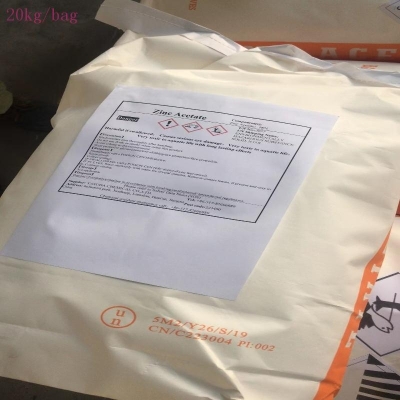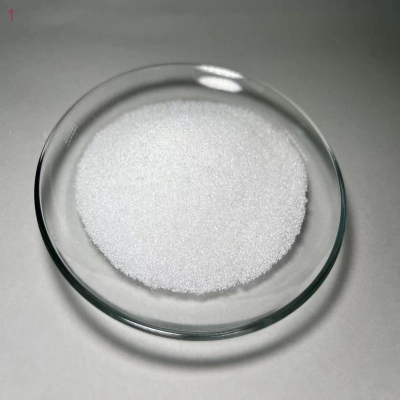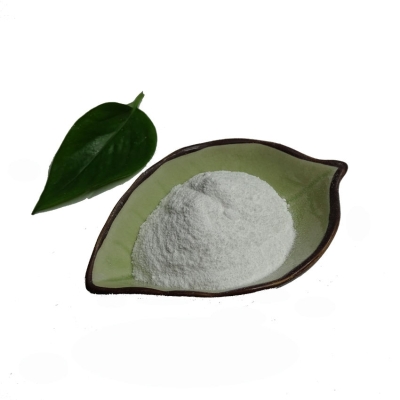-
Categories
-
Pharmaceutical Intermediates
-
Active Pharmaceutical Ingredients
-
Food Additives
- Industrial Coatings
- Agrochemicals
- Dyes and Pigments
- Surfactant
- Flavors and Fragrances
- Chemical Reagents
- Catalyst and Auxiliary
- Natural Products
- Inorganic Chemistry
-
Organic Chemistry
-
Biochemical Engineering
- Analytical Chemistry
-
Cosmetic Ingredient
- Water Treatment Chemical
-
Pharmaceutical Intermediates
Promotion
ECHEMI Mall
Wholesale
Weekly Price
Exhibition
News
-
Trade Service
One-stop service is the direction of fertilizer companies' efforts? The International Agriculture and Fertilizer Development Forum was held in Thailand.
?? Bangkok, Thailand, January 12th, by Jinzhengda Group, National Engineering Research Center for Compound Fertilizers, and China-US Slow Controlled Release Fertilizer Research The "International Agriculture and Fertilizer Development Forum" co-sponsored by the Center and the Thai Bawei Group was held in Phuket, Thailand.
The experts at the meeting analyzed the world's agricultural and fertilizer development situation, took the pulse of China's fertilizer industry, and aimed at China's agricultural development model and the transformation of fertilizer enterprises.
Speak freely.
Experts generally believe that good service, especially one-stop service, is the key to the sustainable development of fertilizer companies and the direction of future efforts.
LUC M.
MAENE, former secretary general of the International Fertilizer Association IFA, RASCHE KLAUS, China-US Cooperative Research Center for Slow and Controlled Release Fertilizers, Chen Chen, director of the State Key Laboratory of Efficient Development and Comprehensive Utilization of Nutrient Resources More than 400 leaders, big growers, and distributors, including CHANIN SAENWOO, President and Secretary of Thailand Bahavi Group, PYTOONTILOKAVICHAI, Bahavi Group Marketing Director, and Wan Lianbu, Chairman and President of Kingenta Group, attended the meeting.
? Luke Mayne analyzed that in 2015, in the context of the slowdown of the international economic situation, the global fertilizer market encountered price pressures, sales were weak, and product profit margins were greatly squeezed.
In 2016, the global fertilizer market will follow the energy market.
Uplift, a slight recovery is expected, and global fertilizer demand is expected to increase by 1.
9%.
In terms of supply/demand balance in 2016, phosphate fertilizers are stable, potash fertilizers are declining, and nitrogen fertilizers are increasing; in terms of global trade, phosphate fertilizers and potash fertilizers will expand, and urea will stagnate.
? "'Agrochemical service' is the equivalent concept of a one-stop business model or a one-stop business model.
" Klaus introduced the development history of agrochemical services in the United States and Australia and the current mainstream service models.
He emphasized that “the core competitiveness of agricultural companies lies in their agrochemical service system.
The essence of agrochemical services should be to reduce fertilizer use, improve resource utilization and nutrient absorption and utilization, and ultimately achieve economic input, with a higher level of investment.
, More reasonable output, to provide farmers with a package and one-stop planting solutions.
" Paitun introduced the current development status of agriculture and fertilizer industry in Thailand.
He said: “Thailand is the only net food exporter in Asia, with an annual fertilizer demand of about 6 million tons.
China and Thailand are mutually beneficial and complementary in fertilizers, and mutual cooperation has stronger advantages.
The future cooperation between the two sides has broad prospects.
” Professor Chen Qing proposed.
, Scientific fertilization "weight loss and efficiency improvement" is the future development trend of the fertilizer industry.
He analyzed: “In response to China’s severe overcapacity of fertilizer production, unbalanced development of basic fertilizer varieties, serious product homogeneity, and poor profitability, a series of policies such as the transformation and upgrading of the fertilizer industry, the zero-growth action plan for fertilizers, and the restoration of fertilizer value-added tax, etc.
Both have accelerated the pace of mergers and reorganizations and structural adjustments in the fertilizer industry.
To achieve the goal of zero growth of fertilizers, the key is to rely on technology and services.
Product innovation, packaged fertilization models and value-added services will be the road to transformation and upgrading of the fertilizer industry in the future.
” Wanlian Bu said that in the face of the new situation and new tasks, Kingenta will further accelerate the construction of an innovative, service-oriented, platform-based and international Kingenta, and through exploring and establishing a new mechanism for innovation, entrepreneurship, integration and sharing, it will fully open China's leadership to the world's leading A new journey to realize Kingenta's new vision of "the world's leading plant nutrition expert and planting industry solution provider" as soon as possible.
?? Bangkok, Thailand, January 12th, by Jinzhengda Group, National Engineering Research Center for Compound Fertilizers, and China-US Slow Controlled Release Fertilizer Research The "International Agriculture and Fertilizer Development Forum" co-sponsored by the Center and the Thai Bawei Group was held in Phuket, Thailand.
The experts at the meeting analyzed the world's agricultural and fertilizer development situation, took the pulse of China's fertilizer industry, and aimed at China's agricultural development model and the transformation of fertilizer enterprises.
Speak freely.
Experts generally believe that good service, especially one-stop service, is the key to the sustainable development of fertilizer companies and the direction of future efforts.
LUC M.
MAENE, former secretary general of the International Fertilizer Association IFA, RASCHE KLAUS, China-US Cooperative Research Center for Slow and Controlled Release Fertilizers, Chen Chen, director of the State Key Laboratory of Efficient Development and Comprehensive Utilization of Nutrient Resources More than 400 leaders, big growers, and distributors, including CHANIN SAENWOO, President and Secretary of Thailand Bahavi Group, PYTOONTILOKAVICHAI, Bahavi Group Marketing Director, and Wan Lianbu, Chairman and President of Kingenta Group, attended the meeting.
? Luke Mayne analyzed that in 2015, in the context of the slowdown of the international economic situation, the global fertilizer market encountered price pressures, sales were weak, and product profit margins were greatly squeezed.
In 2016, the global fertilizer market will follow the energy market.
Uplift, a slight recovery is expected, and global fertilizer demand is expected to increase by 1.
9%.
In terms of supply/demand balance in 2016, phosphate fertilizers are stable, potash fertilizers are declining, and nitrogen fertilizers are increasing; in terms of global trade, phosphate fertilizers and potash fertilizers will expand, and urea will stagnate.
? "'Agrochemical service' is the equivalent concept of a one-stop business model or a one-stop business model.
" Klaus introduced the development history of agrochemical services in the United States and Australia and the current mainstream service models.
He emphasized that “the core competitiveness of agricultural companies lies in their agrochemical service system.
The essence of agrochemical services should be to reduce fertilizer use, improve resource utilization and nutrient absorption and utilization, and ultimately achieve economic input, with a higher level of investment.
, More reasonable output, to provide farmers with a package and one-stop planting solutions.
" Paitun introduced the current development status of agriculture and fertilizer industry in Thailand.
He said: “Thailand is the only net food exporter in Asia, with an annual fertilizer demand of about 6 million tons.
China and Thailand are mutually beneficial and complementary in fertilizers, and mutual cooperation has stronger advantages.
The future cooperation between the two sides has broad prospects.
” Professor Chen Qing proposed.
, Scientific fertilization "weight loss and efficiency improvement" is the future development trend of the fertilizer industry.
He analyzed: “In response to China’s severe overcapacity of fertilizer production, unbalanced development of basic fertilizer varieties, serious product homogeneity, and poor profitability, a series of policies such as the transformation and upgrading of the fertilizer industry, the zero-growth action plan for fertilizers, and the restoration of fertilizer value-added tax, etc.
Both have accelerated the pace of mergers and reorganizations and structural adjustments in the fertilizer industry.
To achieve the goal of zero growth of fertilizers, the key is to rely on technology and services.
Product innovation, packaged fertilization models and value-added services will be the road to transformation and upgrading of the fertilizer industry in the future.
” Wanlian Bu said that in the face of the new situation and new tasks, Kingenta will further accelerate the construction of an innovative, service-oriented, platform-based and international Kingenta, and through exploring and establishing a new mechanism for innovation, entrepreneurship, integration and sharing, it will fully open China's leadership to the world's leading A new journey to realize Kingenta's new vision of "the world's leading plant nutrition expert and planting industry solution provider" as soon as possible.







